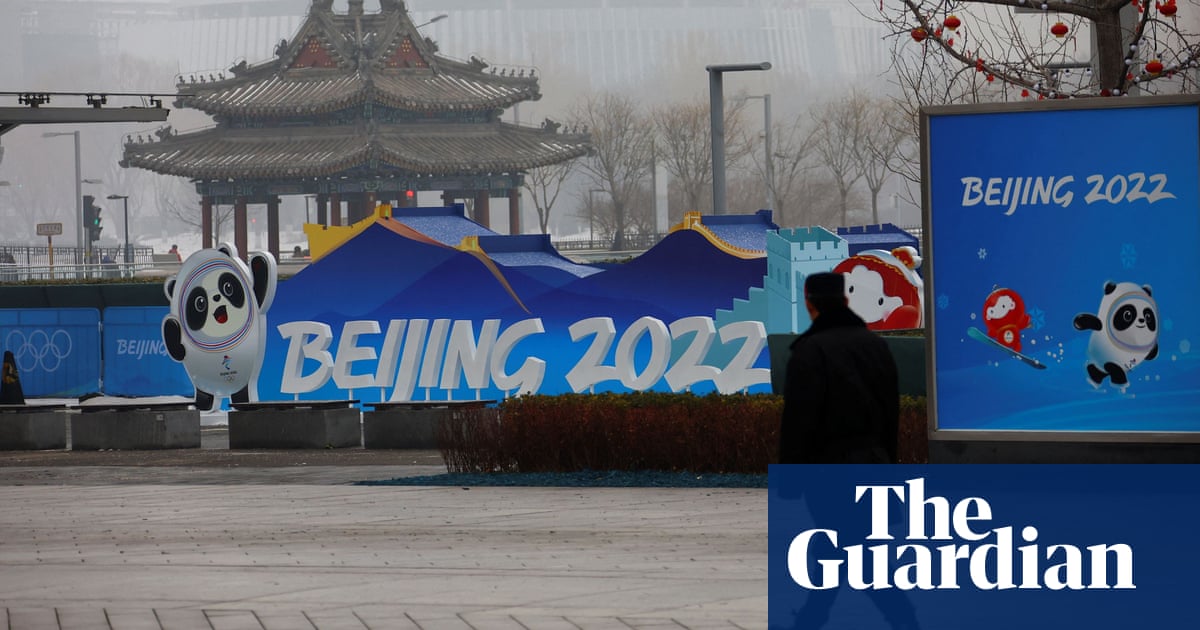Uyghur community leader Adam Turan says it “hurts” that Australian athletes are still taking part in the Winter Olympics “in a country where they’re carrying out a genocide against our people”.
His voice adds to global criticism of China’s human rights record ahead of February’s games in Beijing.
Turan left China in 2011. He, like other Uyghurs settled in Australia, has family in the Xinjiang camps. His father was interned, but died not long after being released.
Now in Adelaide, Turan said the diplomatic boycott of the game was “not enough”.
“It’s not the athletes – it’s the stage,” he said.
“While our people suffer in camps and in prison we can’t enjoy the game even if we want to. It hurts. It’s in a country where they are carrying out a genocide against our people.”
Up to a million Uyghurs, a Muslim ethnic minority living in or near Xinjiang, are being held in camps that have been described as “concentration camps”. The Chinese Communist party refers to them as “re-education camps”.
Australian athletes will compete in the games, although officials will not travel to China under the diplomatic boycott.
The prime minister, Scott Morrison, said in December it was “not surprising” officials would not attend, but that athletes would and that he keeps sport and politics separate.
Human Rights Watch has been detailing alleged abuses in Xinjiang, and federal sports minister, Richard Colbeck, has expressed concerns about potential restrictions on athletes’ speech while they are in China.
The Score4Rights campaign, launched in December, is calling for former Olympians and Olympic candidates to post pictures and videos of themselves holding a C-shape into the sky.
The action, imitating moonlight and the letter “C”, represents “hope for change” the campaign says, and aims to “initiate action for the victims, most of whom do not have the freedom or chance to raise their voices”.
The campaign, acknowledging the diplomatic boycott by a number of countries such as the US and Australia, said it was neither realistic nor fair to ask all athletes to boycott the Olympics, a once-in-a-lifetime opportunity for most.
But it wants to involve athletes who can speak out, as “the main actors of the Olympic Games”.
“The Olympics, which is among the most prestigious international sporting events, is a unique opportunity to raise international awareness about China’s rights abuses, paving the way for China to reconsider its take on human rights.”
The Score4Rights campaign said China’s record of human rights abuses had been consistently and credibly documented, including forced labour, forced sterilisation, torture and killings in concentration camps, mass surveillance, arbitrary detention, a crackdown on democratic movements, and the restraint of freedom of religion and expression.
Australian Olympic committee president, John Coates’s recent endorsement of China as “amazing” prompted calls for him to raise concerns about human rights with the Chinese government.
The Australian director of Human Rights Watch, Elaine Pearson, told the ABC Coates “absolutely should be calling for the release of anyone arbitrarily detained in China including Australian citizens like Yang Hengjun and Cheng Lei”.
Coates told CTGN, the Chinese Community Party-controlled broadcaster, that he had a “very high regard for the Chinese people and their ability to organise the Olympic Games”.
He quoted the International Olympic Committee’s games director, Christophe Dubi, saying “the preparations are amazing”, and added Dubi also called China’s handling of the Covid-19 pandemic “amazing”.
An Australian Olympics Committee spokesperson said that athletes are free to express themselves at the games under the International Olympic Committee’s Rule 50, which allows athletes’ freedom of expression outside official venues. The rule, implemented after the 1968 Black Power protests by American sprinters Tomme Smith and John Carlos on the podium in Mexico City, prohibits protests or political messages on the podium.
“The Games are going ahead and the Australian team will be competing. We are confident the team will be perfectly safe while in China,” the Australian spokesperson said.
Last week, the deputy director general of international relations for the Beijing Organising Committee, Yang Shu, said “any behaviour or speech that is against the Olympic spirit, especially against the Chinese laws and regulations, are also subject to certain punishment”.
Turan said it had been four years since he’d heard from some of his family members, and that it was impossible to know exactly what was happening in Xinjiang.
“How do we persuade the international community to believe us?” he asked.
“We can’t do all of this ourselves. It should be like breaking news every day. It’s not, because it’s happening to my people. It’s mind boggling.”
